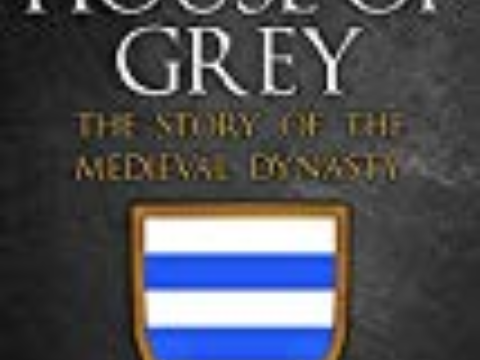Anne of Brittany: Life Story
Chapter 5 : Victory & Defeat
It was during 1494 that the Venetian ambassador to France, Contarini, described both Anne and her husband. Of Anne, he wrote:
The Queen is seventeen. She also is small and thin in person, visibly lame in one foot, although she uses a false heel; very determined for her age, so much so, that if a wish enters her head, by smiles or tears, at any cost she will obtain it.
Charles, he described as distinctly unprepossessing in his physical persona, with little in his character to redeem him:
The King of France is twenty-two years of age, with a small and ill-formed person; he has an ugly face, with large light eyes, with which he sees rather badly than well, an aquiline nose much out of proportion to the rest of his face; his lips also are big, and he keeps them constantly open ; he has certain nervous movements in his hands which are not pleasant to see, and he is slow of speech. According to my opinion, which may very well be wrong, I feel convinced that in body as well as in mind he is not worth much. However, everyone in Paris praises him for his very great skill in tennis, hunting, and jousting, exercises to which for good or ill he devotes much of his time. They praise him also because he has given over the charge and government of his affairs to certain members of the privy council, and will no longer leave to others the task of deliberating. They say that in his decisions he gives proof of high intelligence.
On 29th August 1494 Charles took his public leave of Anne at Lyons, and began the march towards Naples. Amongst his train were several of her Breton lords, and a contingent of 6,000 Breton archers.
Meanwhile, Pope Innocent, who had initially invited Charles to claim Naples, had been succeeded by Pope Alexander VI (Rodrigo Borgia) who had been persuaded, through the usual means of bribery and land grants to his children, to accept Ferrante’s son, Alphonse, as King of Naples. Pope Alexander now admonished Charles for threatening the peace of Christendom. If he felt he had a valid claim to Naples, he should submit it to Alexander for arbitration.
Charles ignored the Pope and pressed on. The other Italian states now had to decide on their best course of action. Ludovico Sforza, who had usurped the duchy of Milan from his nephew, Gian Galeazzo Sforza, had been encouraging Charles, as he was at odds with Alfonso, but he had anticipated that French troops would go by sea from the port of Genoa (a Milanese controlled port), rather than marching through the whole duchy. Realising that Charles was not preparing for just a minor skirmish, but for all out war, Ludovico became less enthusiastic – especially when he realised that Louis of Orléans meant to press his own claim to Milan, as heir of the Visconti dukes.
The Duke of Ferrara, although he had tried to maintain peace between Ludovico (his son-in-law) and Alfonso (his brother-in-law) was generally pro-French. The Florentines were divided – most pro-French, Piero de’ Medici, pro-Alfonso. The Venetians tried to stay out of it, whilst Pope Alexander was in the most difficult position. To reach Naples, Charles had to pass through the Papal States. Resistance to the French army could be hugely damaging, but Alexander had promised his protection to Alfonso.
The complexities of the war are endless. In sum, Charles successfully conquered Naples, having encountered little resistance. The other rulers of Italy were jolted into reality – their failure to protect Naples from France, made them vulnerable. Charles would not be given such an easy passage back through the peninsula.
Meanwhile, back in France, Anne was behaving as expected of a royal wife. Masses were ordered, and offerings given for the safety and success of her husband. In his absence, she had no political power – she was not designated as regent. So far is known, she spent the entire period of Charles’ absence in and around Lyons. She had suffered an infant death in August 1493, and another in March 1494. She was pregnant again before Charles left in August, bearing a still-born daughter the following March (1495). Such a stressful period may have made it wise for Anne to remain in one place – although it meant she did not see her one living child.
Charles departed Naples on 20 May 1495 and returned through Italy, this time encountering organised resistance from the newly formed Holy League, otherwise known as the League of Venice. This comprised Ferdinand of Aragon, Maximilian, Ludovico of Milan, the Venetian Republic, the Pope and others.
The armies clashed near Parma at the Battle of Fornovo on 6th July 1495. Whilst both sides claimed victory, Charles had lost many men, and pretty much all of the booty they had previously captured. Nevertheless, the French were able to pass through Milan, and both sides claimed victory. Charles signed a treaty with Ludovico (to the chagrin of Louis of Orléans who wanted Charles’ support to press his claims to the duchy). The French would be permitted to use Genoa to keep their passage to Naples free.
Before long, however, the younger son of Ferrante I of Naples had been restored to his throne, with the help of his cousin, Ferdinand of Aragon, and Charles’ men had been largely driven out.
